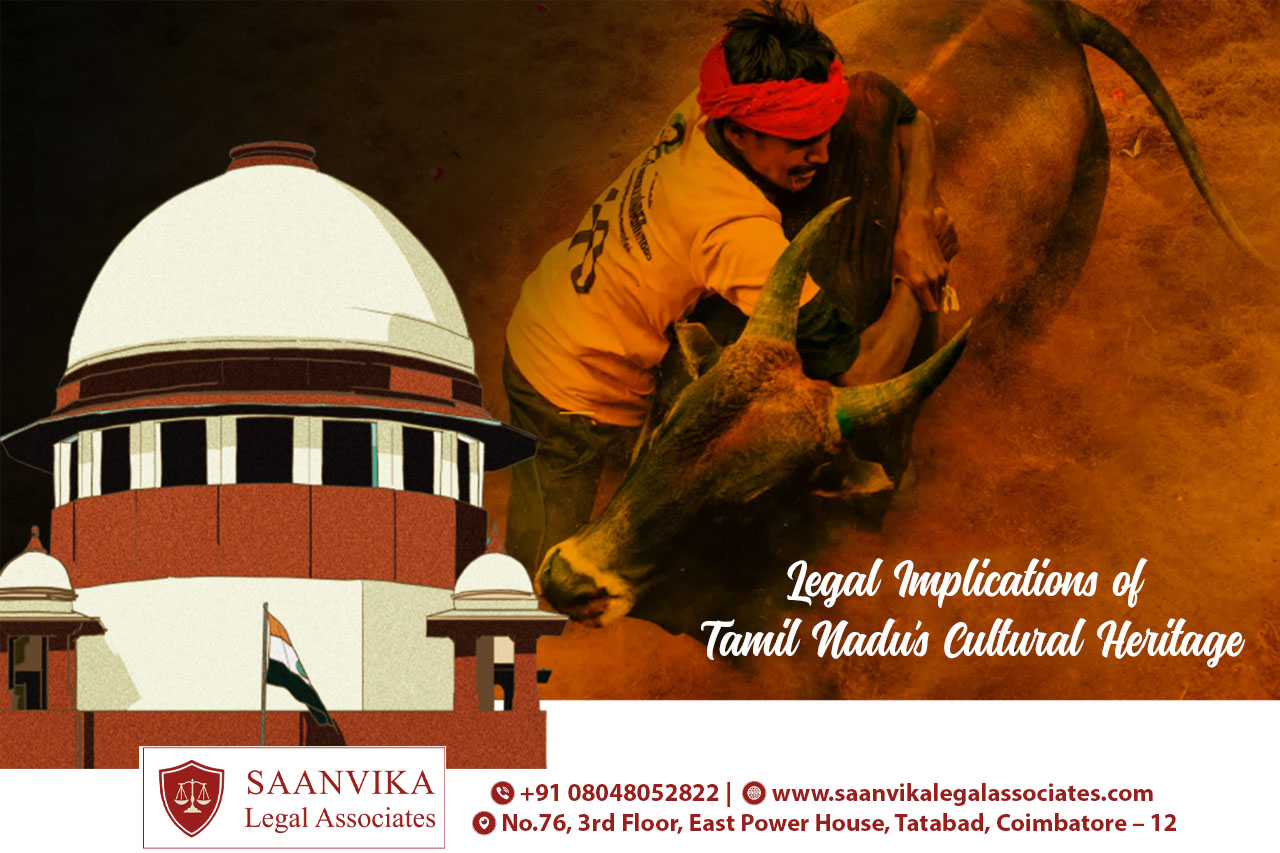
Tamil Nadu’s Cultural Heritage/ Legal implicati...

Tamil Nadu’s Cultural Heritage/ Legal implications of Tamil Nadu’s Cultural Heritage/ Best law firm in Coimbatore/ Best advocates in Coimbatore/Best law service in Coimbatore/ Best legal consultation in Coimbatore/ Best legal services in Coimbatore/ Best lawyers in Coimbatore/ Online legal consultation. Tamil Nadu's rich cultural heritage, including its ancient temples, traditional arts, and historical monuments, carries several legal implications. The preservation and protection of this heritage are critical, and there are various laws and regulations in place to safeguard Tamil Nadu's cultural and historical assets: Antiquities and Art Treasures Act, 1972 regulates the export trade in antiquities, the excavation of archaeological sites, and the protection of art treasures. It ensures that historical artifacts and cultural objects cannot be taken out of the country without proper authorization. Tamil Nadu Ancient and Historical Monuments and Archaeological Sites and Remains Act, 1966 state-specific law protects ancient monuments, archaeological sites, and remains in Tamil Nadu. It regulates excavation, preserves historical sites, and prevents unauthorized construction in these areas. Town and Country Planning Act under this Act ensure that new constructions near heritage sites adhere to specific guidelines. This includes maintaining a certain distance from historical monuments and preserving the aesthetic and cultural integrity of the surroundings. Heritage Conservation Committees, Local bodies and municipalities often form heritage conservation committees to oversee the preservation and restoration of heritage sites. These committees work in compliance with state laws and regulations. Intellectual Property Laws, Traditional arts, crafts, and cultural expressions are protected under intellectual property laws. Traditional knowledge and heritage-based intellectual property are safeguarded to prevent exploitation and misappropriation. Environmental Laws, Heritage sites often fall under environmentally sensitive zones. Environmental laws and regulations are applicable to ensure that activities near these sites do not harm the environment, affecting the cultural heritage indirectly. Zoning regulations in cities like Chennai often have specific rules about construction near heritage sites. These laws ensure that new buildings and developments do not encroach upon the historical and cultural significance of the area. The Public Trust Doctrine, as a part of Indian law, holds that the government is a trustee of all-natural resources, including cultural and historical heritage. It ensures that these resources are protected for public use and enjoyment. Various government agencies and NGOs conduct educational programs to create awareness about the cultural heritage of Tamil Nadu. These programs inform the public about the significance of heritage sites and the need for their preservation.Tamil Nadu has UNESCO World Heritage Sites like the Great Living Chola Temples. The recognition brings international attention and requires adherence to specific preservation standards. These legal implications collectively ensure that Tamil Nadu's cultural heritage is protected, preserved, and passed down to future generations, contributing to the state's identity and fostering cultural pride. Legal frameworks, public awareness, and active participation are vital in maintaining the integrity of Tamil Nadu's rich cultural heritage. You can get the law services of Saanvika Legal Associates like Trust deeds, Financial law, Insurance law, Environment, Consumer, Property, Banking Tax Cyber, Constitutions, Labor law, Civil, Criminal, Family, Property registration, Getting Doc, and many others. Additionally, you can get to know about Legal notice, documentation, Legal registration, Property organization, establishing companies, Family legal consultation, Civil legal consultant, Criminal legal consultant, and Litigation for finance property from our expert lawyers.
Keywords
Subscribe for latest offers & updates
We hate spam too.


